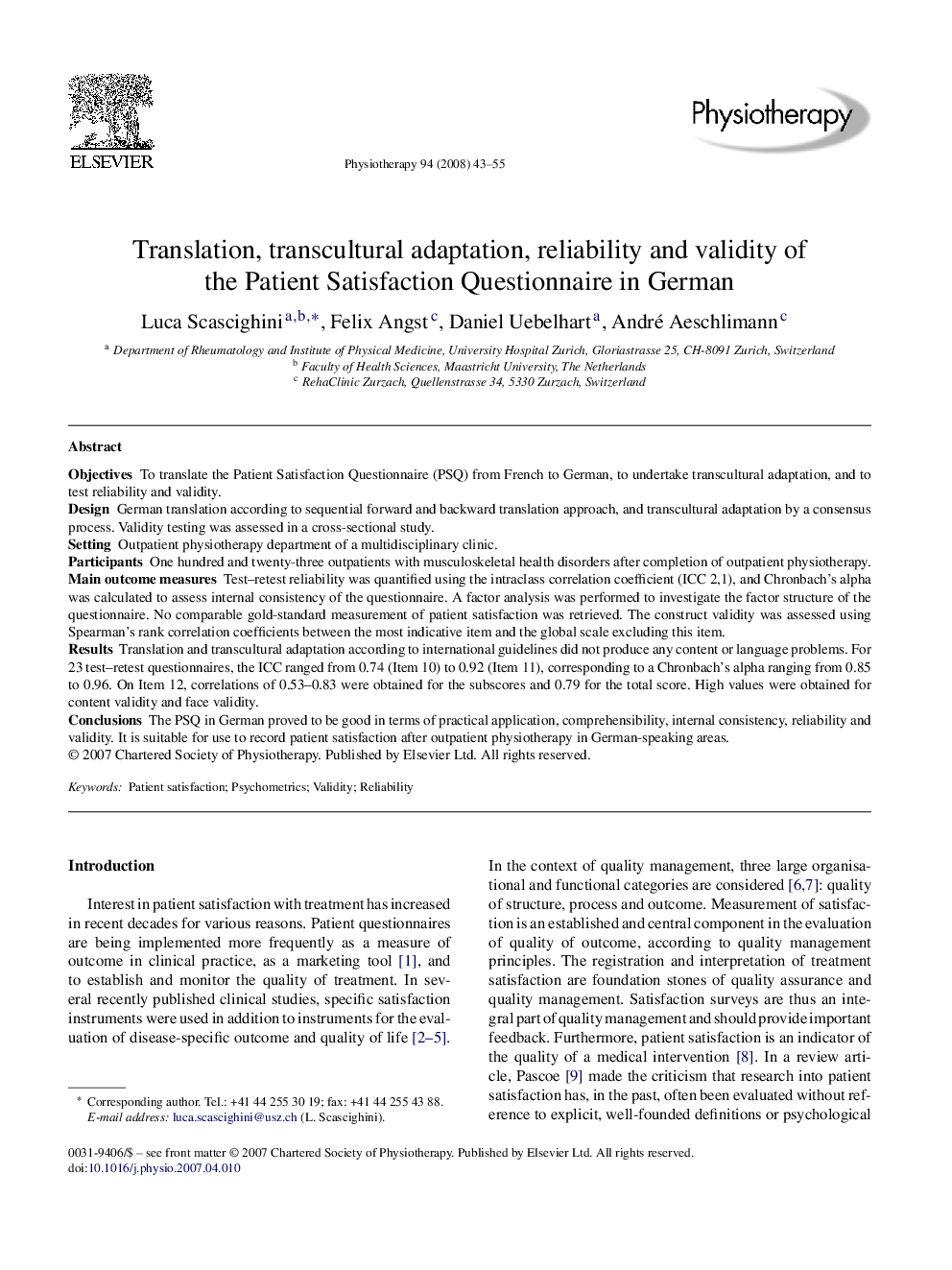| Article ID | Journal | Published Year | Pages | File Type |
|---|---|---|---|---|
| 2627455 | Physiotherapy | 2008 | 13 Pages |
ObjectivesTo translate the Patient Satisfaction Questionnaire (PSQ) from French to German, to undertake transcultural adaptation, and to test reliability and validity.DesignGerman translation according to sequential forward and backward translation approach, and transcultural adaptation by a consensus process. Validity testing was assessed in a cross-sectional study.SettingOutpatient physiotherapy department of a multidisciplinary clinic.ParticipantsOne hundred and twenty-three outpatients with musculoskeletal health disorders after completion of outpatient physiotherapy.Main outcome measuresTest–retest reliability was quantified using the intraclass correlation coefficient (ICC 2,1), and Chronbach's alpha was calculated to assess internal consistency of the questionnaire. A factor analysis was performed to investigate the factor structure of the questionnaire. No comparable gold-standard measurement of patient satisfaction was retrieved. The construct validity was assessed using Spearman's rank correlation coefficients between the most indicative item and the global scale excluding this item.ResultsTranslation and transcultural adaptation according to international guidelines did not produce any content or language problems. For 23 test–retest questionnaires, the ICC ranged from 0.74 (Item 10) to 0.92 (Item 11), corresponding to a Chronbach's alpha ranging from 0.85 to 0.96. On Item 12, correlations of 0.53–0.83 were obtained for the subscores and 0.79 for the total score. High values were obtained for content validity and face validity.ConclusionsThe PSQ in German proved to be good in terms of practical application, comprehensibility, internal consistency, reliability and validity. It is suitable for use to record patient satisfaction after outpatient physiotherapy in German-speaking areas.
